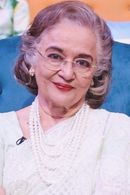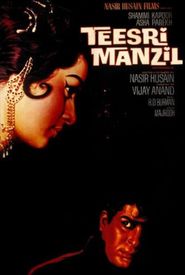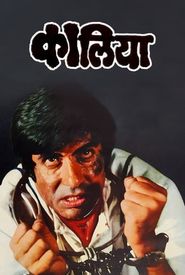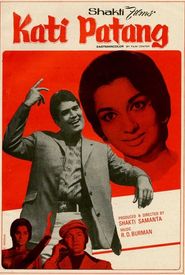Asha Parekh was born on October 2, 1942, in India to a middle-class Gujarati household with a Hindu father, Pranlal Parekh, and a Muslim mother, Sudha Parekh. As the only child, she became the center of her parents' lives. Her mother enrolled her in classical dance classes at an early age, and Asha excelled at dance, performing at stage shows. Famed film director Bimal Roy saw her dance and cast her in Maa (1957) at the age of ten. She continued to act in films, including Baap Beti (1954),but quit acting at the age of 16 to resume her schooling.
At 16, Asha decided to try acting again and make her debut as a heroine, but director Vijay Bhatt fired her from Goonj Uthi Shehnai (1959) claiming she wasn't star material. Almost immediately, film producer Sasadhar Mukherjee and writer-director Nasir Hussain cast her as the heroine in Dil Deke Dekho (1959),which made her a huge star. She went on to star in several films with her favorite hero and friend, Shammi Kapoor, and director Nasir Hussain, including the murder mystery Teesri Manzil (1966).
Asha's fame gave her enough leverage to get producers to hire her mother, Sudha Parekh, to design her costumes for most of the films she starred in. She won the Gujarat State Award for Best Actress for her first Gujarati film, Akhand Saubhagyavati (1963). She also brought out jealousies from her female co-stars, including Simi Garewal, who claimed that Asha tried to cut her part down in "Do Badan", but Asha insisted that she never did that.
Asha earned the title "Jubilee Girl" due to the continuous string of box office successes, including Ziddi (1964),Shikar (1968),Aan Milo Sajna (1970),and Mera Gaon Mera Desh (1971). She also hit a rare bump with Raj Khosla's Chirag (1969),but earned her first Filmfare nomination as Best Actress for the film. She won the much-coveted Best Actress Filmfare Award for Shakti Samanta's Kati Patang (1970).
Asha continued to act in films, including Udhar Ka Sindur (1976) and Main Tulsi Tere Aangan Ki (1978),which also won the Filmfare Award as Best Film. However, her back problems forced her to give up doing dance shows. She found a new passion, directing television serials, including the hugely popular Kora Kogaz in the early 90's, which convinced her to give up acting permanently in 1995.
Asha formed her production company "Akruti," through which she produced and directed television serials. She received the Filmfare Lifetime Achievement Award in 2002. After her mother's death, she sold her huge bungalow and moved into a smaller place to take care of her ailing father until he passed away. She has never married and has not had any affairs with her many heroes, claiming that her reputation of being unapproachable probably intimidated men.
In her 2017 memoir "The Hit Girl" (co-written by Khalid Mohamed),she confirmed that her longtime director Nasir Hussain was the "only one and true love of my life." However, he was already married with two children, and she couldn't marry him without wrecking havoc on both their families. Asha continues to remain in touch with his children, grandson, and nephew, including Aamir Khan.
Asha has set up a dance academy "Kara Bhavan," which has produced many skilled and talented dancers. She also has an official Instagram account and has traveled from India to the USA to collect a lifetime achievement award at a film festival. Today, Asha says that she is very flattered to know that she has fans all over the world.






















